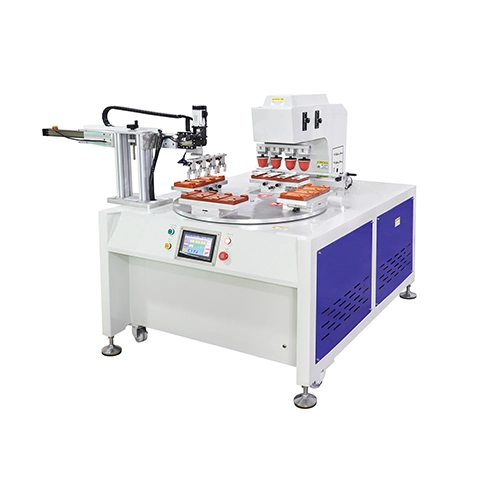Need precise two-color prints on complex surfaces? Two-color pad printing machines solve your multi-color decoration challenges on everything from golf balls to medical devices.
Two-color pad printing machines use silicone pads to transfer two separate ink colors onto irregular surfaces with perfect registration, making them ideal for multi-color logos, indicators, or decorative designs on 3D objects.
While single-color pad printers work for basic applications, two-color models open new creative possibilities. Let's explore how these specialized machines can transform your production capabilities.
Struggling to print crisp multi-color designs on curved items? These machines precisely transfer two ink layers without smudging or misalignment.
A two color pad printing machine uses two separate ink cups and printing plates to apply different colors sequentially. The silicone pad picks up both colors in perfect register during each print cycle. This creates sharp two-tone images on products single-color machines can't handle properly.
First Color Application:
The first cliché (printing plate) holds the initial color design
Ink fills the etched pattern
A silicone pad picks up this first color layer
Second Color Application:
The product moves to the second station
Another pad collects the second color
Both colors merge on the product surface
Key components making this possible:
Dual printing stations with precision alignment
High-quality silicone transfer pads
Special low-solvent inks that dry quickly between colors
Micro-adjustable mounting systems

Still using separate single-color passes? You're wasting time and risking alignment errors between color layers.
Two-color pad printers from leading automatic pad printing machine manufacturers increase productivity by 40-60% compared to running two single-color machines, while eliminating registration problems between color passes.
Major advantages you'll gain:
Perfect Color Alignment
Eliminates manual repositioning errors
Maintains ±0.1mm registration consistency
Automatic pallet positioning systems
Higher Production Speeds
Simultaneous two-color application
No drying time between color layers
Cycle times under 10 seconds
Expanded Design Options
Gradient color effects
Shadow/highlight details
Multi-color safety markings
Branding with accent colors
Case Example: A medical device manufacturer reduced rejection rates from 12% to 0.2% after switching to automated two-color printing for syringe markings.
Limited to simple one-color prints? These industries leverage two-color capabilities every day:
Circuit board component labeling
Multi-color safety warnings
Branded connector markings
Gauge panel indicators
Control button symbols
Multi-tone logos on knobs
Color-coded measurement scales
Drug dosage indicators
Warning symbols on devices
Team logos on drinkware
Gradient color pens
Multi-tone keychains
Overwhelmed by technical specs? Focus on these critical elements when selecting your machine:
| Feature | Why It Matters | What to Look For |
|---|---|---|
| Print Area | Determines maximum image size | Minimum 100x100mm for most industrial uses |
| Registration Accuracy | Affects color alignment | ±0.05mm or better for sharp details |
| Ink System | Impacts color options | Dual sealed ink cups with quick-change design |
| Automation Level | Affects production speed | Automatic pad cleaning between cycles |
| Material Compatibility | Determines substrate options | Test prints on your specific materials |
Two-color pad printers from haover deliver unmatched multi-surface printing for industrial and commercial applications requiring precise color registration. By understanding capabilities and key selection factors, you can implement this versatile technology successfully.


